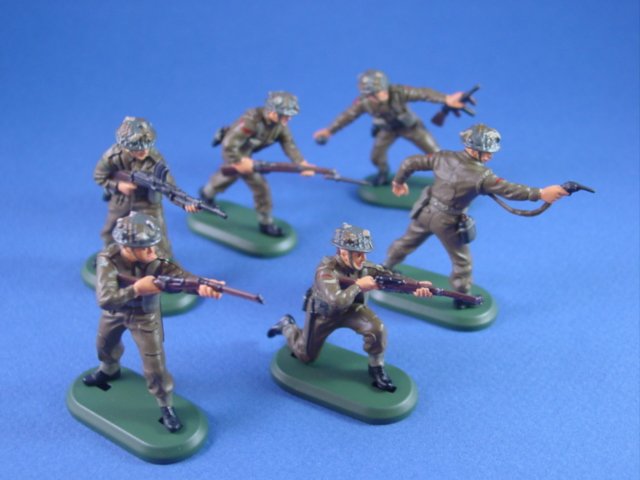Henry Reed Feb 22, 1914-Dec 8, 1986
To-day we have naming of parts. Yesterday,
We had daily cleaning. And to-morrow morning,
We shall have what to do after firing. But to-day,
To-day we have naming of parts. Japonica
Glistens like coral in all of the neighboring gardens,
And to-day we have naming of parts.
— Henry Reed “Naming of Parts”
To-day we have Henry Reed’s birthday. Henry Reed, who wrote one of my favorite poems: Lessons of the War. Reed published this poem in the New Statesman and the Nation August 1942. Superficially, the poem is a soldier’s griping in the ill-equipped British army of WWII. But there is also the dark undercurrent of a man yanked from everyday life and forced to face his own mortality. Lessons of War has six parts, and it gets more somber as the poem progresses. The “naming of parts” he talks about in the excerpt above is the all-too-familiar experience in basic training: getting to know your personal weapon.
Here is part II: Judging Distances.
LESSONS OF THE WAR
II. JUDGING DISTANCES
Not only how far away, but the way that you say it
Is very important. Perhaps you may never get
The knack of judging a distance, but at least you know
How to report on a landscape: the central sector,
The right of the arc and that, which we had last Tuesday,
And at least you knowThat maps are of time, not place, so far as the army
Happens to be concerned—the reason being,
Is one which need not delay us. Again, you know
There are three kinds of tree, three only, the fir and the poplar,
And those which have bushy tops to; and lastly
That things only seem to be things.A barn is not called a barn, to put it more plainly,
Or a field in the distance, where sheep may be safely grazing.
You must never be over-sure. You must say, when reporting:
At five o’clock in the central sector is a dozen
Of what appear to be animals; whatever you do,
Don’t call the bleeders sheep.I am sure that’s quite clear; and suppose, for the sake of example,
The one at the end, asleep, endeavors to tell us
What he sees over there to the west, and how far away,
After first having come to attention. There to the west,
On the fields of summer the sun and the shadows bestow
Vestments of purple and gold.The still white dwellings are like a mirage in the heat,
And under the swaying elms a man and a woman
Lie gently together. Which is, perhaps, only to say
That there is a row of houses to the left of the arc,
And that under some poplars a pair of what appear to be humans
Appear to be loving.Well that, for an answer, is what we rightly call
Moderately satisfactory only, the reason being,
Is that two things have been omitted, and those are very important.
The human beings, now: in what direction are they,
And how far away, would you say? And do not forget
There may be dead ground in between.There may be dead ground in between; and I may not have got
The knack of judging a distance; I will only venture
A guess that perhaps between me and the apparent lovers,
(Who, incidentally, appear by now to have finished,)
At seven o’clock from the houses, is roughly a distance
Of about one year and a half.
You can read all six parts of Lessons of the War here.




















Naming of Parts is one of my all-time favourite poems. I didn’t realize it was part of a series. Thanks (searches Amazon).